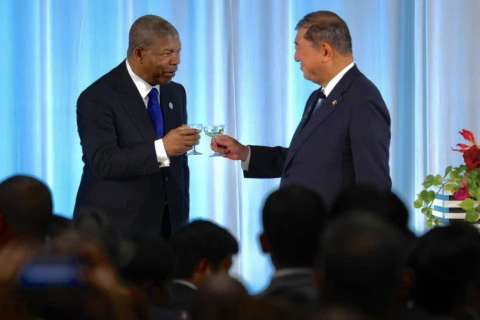"It is necessary to look at the [African] woman with a decolonized look, from Africa", said the author, among other titles, of the novel, "Essa Dama Bate Bué!", considering that it cannot be about "the rights of woman" without there being "an interaction between gender, race and social class".
For the 44-year-old writer, it is, moreover, in this lack of interaction in the analysis of women's problems that many of the weaknesses of movements in favor of their rights reside.
"Many of the weaknesses of the movements that fight for women's rights are precisely because they ignore these interceptions", she criticized, citing the suffragist movement as an example: "Women had the right to vote, but only after three decades could black women vote".
And when you look at the rights of Angolan women, you can't ignore these aspects much less, when the majority "carries the homeland", with a lot of effort and without support.
In the opinion of Yara Nakahanda Monteiro, the Angolan Government even "has made efforts, and implemented, or at least developed, legal instruments that promote not only equality, but gender equity" - for example, in labor legislation people of the same sex women are protected by law.
Only that this is for working women with a work contract, from the Angolan middle and upper class, he noted, commenting that the majority, the 'zungueiras' (street vendors) or even the domestic servants, do not have these rights and "often are persecuted by the authorities".
For these, the writer sees no other solution to defend their rights that does not first pass through access to basic services, because in these cases, she considered: "We are talking about extreme and precarious situations of survival".
For this reason, she argued that in Angola "before resolving labor issues, issues of access to basic social services must first be resolved", such as education, health and sanitation.
"We are in the habit of looking at these issues of gender equality with a western look in which many of the basic needs are satisfied, which in this case does not happen", she stressed.
Especially because these women, those who have no support and also contribute to the Angolan economy, albeit in informal terms, "carry the homeland", added Yara, who describes them in a poem in her book "Memories, appearances and arrhythmias" exactly like this: "A mother's back is a loving cradle, a child's bed that falls asleep with the lullaby that calms my cries, my mother always smiles. On her back she carries her homeland".
"This, for me, is the symbol of the Angolan woman in the 21st century, who is the one I see every day in the 'zunga'. Does that worry me? Of course it does. So much so that I wrote a novel dedicated to the Angolan woman", she concluded , still questioning: "Giving a professional card could be a solution [for these people], but they need an address, do they have one? And can they read?".
At a global level, she noted that women's rights have receded in recent years, "due to the prohibition of abortion in the United States, the lack of freedom in Afghanistan, because we continue with economic disparities", and different salaries.
Yara Nakahanda Monteiro and the Brazilian Helena Trevisan will debate female literature at Livraria da Travessa, in Lisbon, next Sunday, as part of the celebrations of International Women's Day, an initiative of FIBE - Brazil-Europe Integration Forum, with a Duets – Overseas Dialogues session.
But, for Yara Monteiro, "female literature is a label" that should no longer exist but rather be "eliminated".
In a conversation with Lusa, the writer considered that a separation should be made between "who writes and the work". And "the work goes beyond who writes it".
Brazilian writer Helena Trevisan, author, among other titles, of "Luz de Néon", for her part, stressed that, at the end of 2022, "all major awards" for works in Portuguese were awarded to women, considering that examples like this are not fortuitous.
"It is, in itself, an important and necessary movement of the female presence, not only in the literary scene, but in the field of the arts in general, scientific knowledge, politics that has been pronounced with more energy in recent years", stated the author.
For Helena Trevisan, there is also "a space that expands to give voice to trans writers, lesbians, black women and that, in this way, is enriched".
However, "unless there is an activist purpose in a fictional narrative, literary expression was, is and will continue to be the art of telling stories and capturing the reader for intimate experiences, regardless of the genre in which he wrote them", she stressed, in a written response to questions posed by Lusa.
For the Brazilian author, "a woman is always a worker, whether she is outside or inside the house".
Brazil, she considered, still faces enormous challenges in terms of women's rights.
"The challenges of a country the size of Brazil are enormous. The regional differences are striking, and the diversity is so great that cultural expression also ends up being extremely rich. The will, hope and work of each one of the Brazilians is that the policies meet that great creative and imaginative capacity that distinguishes our people", she stressed.
Even because "having a voice is a privilege", comments Helena Trevisan. The importance of representativeness is a recurring theme also in the writing of Yara Nakahanda Monteiro, who writes about colonialism and eco-feminism.







